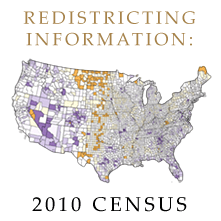

Introduction To Federal Voting Rights Laws
- Introduction To Federal Voting Rights Laws
- Before the Voting Rights Act
- The Voting Rights Act of 1965
- The Effect of the Voting Rights Act
The Voting Rights Act, adopted initially in 1965 and extended in 1970, 1975, and 1982, is generally considered the most successful piece of civil rights legislation ever adopted by the United States Congress. The Act codifies and effectuates the 15th Amendment's permanent guarantee that, throughout the nation, no person shall be denied the right to vote on account of race or color. In addition, the Act contains several special provisions that impose even more stringent requirements in certain jurisdictions throughout the country.
Adopted at a time when African Americans were substantially disfranchised in many Southern states, the Act employed measures to restore the right to vote that intruded in matters previously reserved to the individual states. Section 4 ended the use of literacy requirements for voting in six Southern states (Alabama, Georgia, Louisiana, Mississippi, South Carolina, and Virginia) and in many counties of North Carolina, where voter registration or turnout in the 1964 presidential election was less than 50 percent of the voting-age population. Under the terms of Section 5 of the Act, no voting changes were legally enforceable in these jurisdictions until approved either by a three-judge court in the District of Columbia or by the Attorney General of the United States. Other sections authorized the Attorney General to appoint federal voting examiners who could be sent into covered jurisdictions to ensure that legally qualified persons were free to register for federal, state, and local elections, or to assign federal observers to oversee the conduct of elections.
Congress determined that such a far-reaching statute only in response to compelling evidence of
continuing interference with attempts by African American citizens to exercise their right to vote.
As the Supreme Court put it in its 1966 decision upholding the constitutionality of the Act:
Congress had found that case-by-case litigation was inadequate to combat wide-spread
and persistent discrimination in voting, because of the inordinant amount
of time and energy
required to overcome the obstructionist tactics invariably encountered in these lawsuits. After
enduring nearly a century of systematic resistance to the Fifteenth Amendment, Congress might well
decide to shift the advantage of time and inertia from the perpetrators of the evil to its
victims.
South Carolina v. Katzenbach, 383 U.S. 301, 327-28 (1966).
At the time the Act was first adopted, only one-third of all African Americans of voting age were on the registration rolls in the specially covered states, while two-thirds of eligible whites were registered. Now black voter registration rates are approaching parity with that of whites in many areas, and Hispanic voters in jurisdictions added to the list of those specially covered by the Act in 1975 are not far behind. Enforcement of the Act has also increased the opportunity of black and Latino voters to elect representatives of their choice by providing a vehicle for challenging discriminatory election methods such as at-large elections, racially gerrymandered districting plans, or runoff requirements that may dilute minority voting strength. Virtually excluded from all public offices in the South in 1965, black and Hispanic voters are now substantially represented in the state legislatures and local governing bodies throughout the region.
 |
 |
You may contact the Voting Section at Voting.Section@usdoj.gov for general information concerning the Section's
activities or to make a complaint concerning a voting matter. You may
also use this address to request Voting Section records under the Freedom
of Information Act. If you are making such a request, the phrase "Records request" should appear in the subject line.
If you are an official from a submitting authority, please click here. You may use email if you want to provide your views on a submission that is being reviewed. Please click here to learn more. If you are an official from a submitting authority and need to supplement your initial submission, please click here. For additional information, you may call 1-800-253-3931. |
 |
All mail to the Voting Section must have the full address listed below:
Chief, Voting Section Civil Rights Division Room 7254 - NWB Department of Justice 950 Pennsylvania Ave., N.W. Washington, DC 20530 Deliveries by overnight express service such as Airborne, DHL, Federal Express or UPS should be addressed to: Chief, Voting Section Civil Rights Division Room 7254 - NWB Department of Justice 1800 G St., N.W. Washington, DC 20006 |




